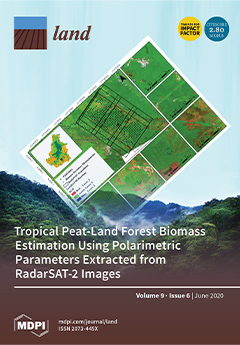Resource information
This study investigates the spatial expansion process, the de facto land use change, and their endogenous driving forces in the village of Fengzhuang since the 1990s. Fengzhuang is a specialized village in Hebei, North China, in which above 80% of rural residents are engaged in the manufacturing of mahogany furniture. Land use data were extracted from a participatory rural appraisal (PRA) survey conducted in 2014–2015. The results suggest that the land in Fengzhuang has been expanding rapidly under the influence of the informal furniture industry. The villagers transform their residential areas into family workshops and factories for the production of furniture. Most rural areas officially marked as residential are, in effect, used for industrial production, resulting in the informality of land use and circulation. The in-depth survey also reveals that the informality of the furniture industry, the bottom-up process of land development, and the evolution of government regulation are the major reasons leading to the de facto change of land use in Fengzhuang. This study offers a microscopic perspective of land use change, which helps to explore the formation and change of rural land use and actual functions, as well as the mechanisms behind them. These findings are expected to provide some implications for improving rural development strategies, rural planning, and governance in China’s specialized villages such as Fengzhuang.


